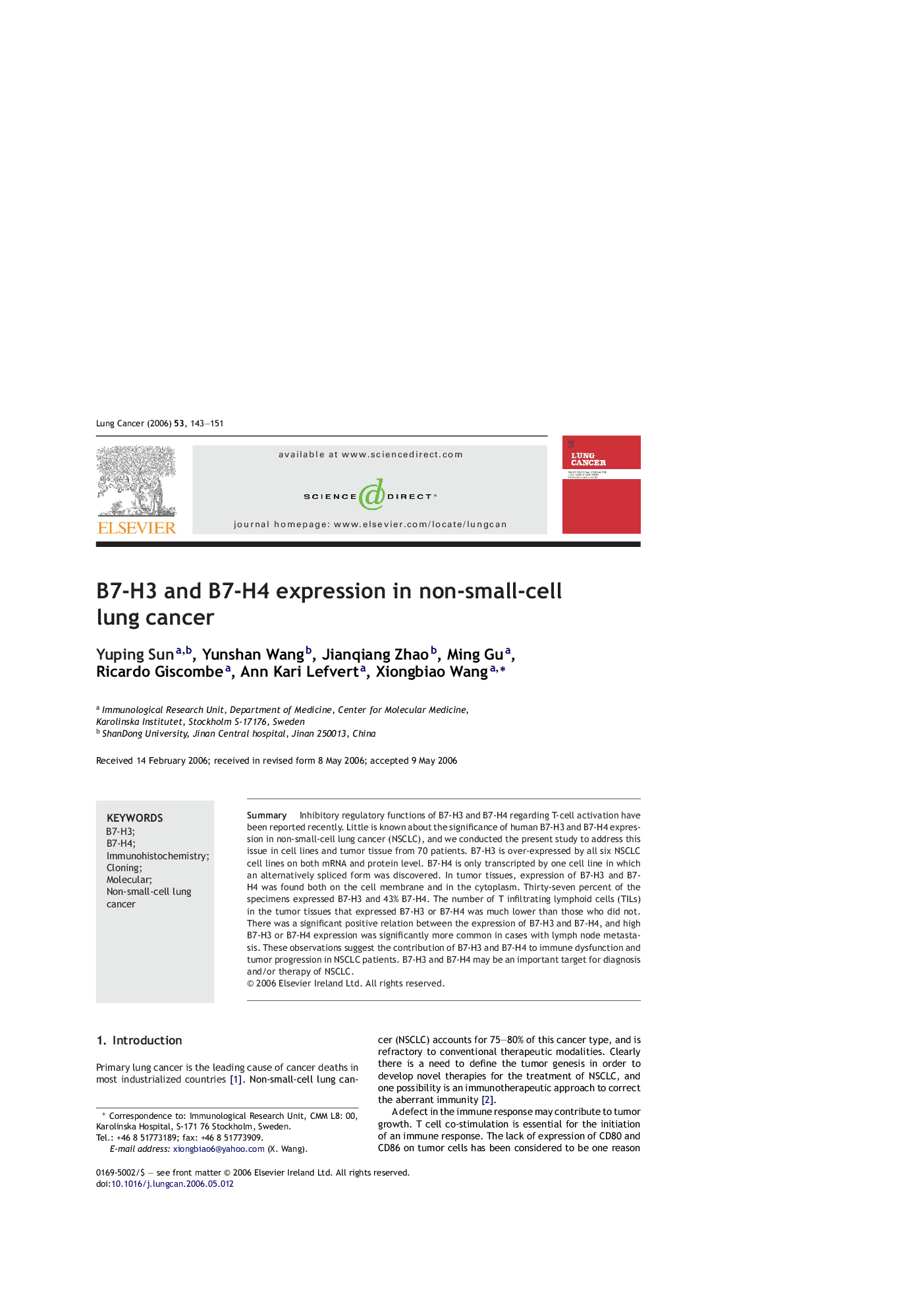| Article ID | Journal | Published Year | Pages | File Type |
|---|---|---|---|---|
| 2144525 | Lung Cancer | 2006 | 9 Pages |
SummaryInhibitory regulatory functions of B7-H3 and B7-H4 regarding T-cell activation have been reported recently. Little is known about the significance of human B7-H3 and B7-H4 expression in non-small-cell lung cancer (NSCLC), and we conducted the present study to address this issue in cell lines and tumor tissue from 70 patients. B7-H3 is over-expressed by all six NSCLC cell lines on both mRNA and protein level. B7-H4 is only transcripted by one cell line in which an alternatively spliced form was discovered. In tumor tissues, expression of B7-H3 and B7-H4 was found both on the cell membrane and in the cytoplasm. Thirty-seven percent of the specimens expressed B7-H3 and 43% B7-H4. The number of T infiltrating lymphoid cells (TILs) in the tumor tissues that expressed B7-H3 or B7-H4 was much lower than those who did not. There was a significant positive relation between the expression of B7-H3 and B7-H4, and high B7-H3 or B7-H4 expression was significantly more common in cases with lymph node metastasis. These observations suggest the contribution of B7-H3 and B7-H4 to immune dysfunction and tumor progression in NSCLC patients. B7-H3 and B7-H4 may be an important target for diagnosis and/or therapy of NSCLC.
